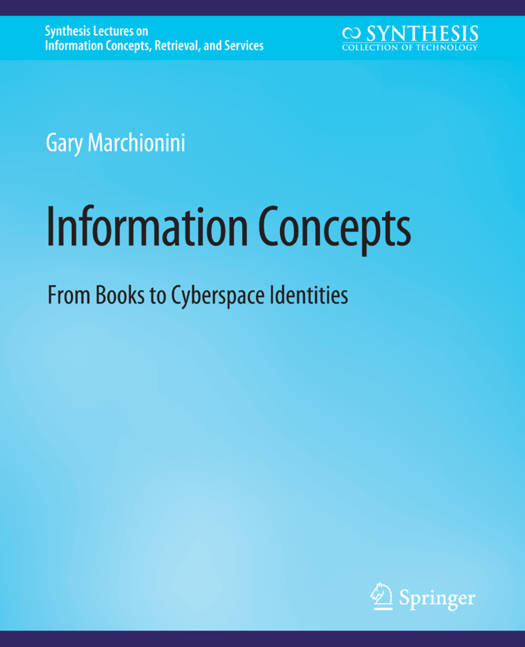
- Retrait gratuit dans votre magasin Club
- 7.000.000 titres dans notre catalogue
- Payer en toute sécurité
- Toujours un magasin près de chez vous
- Retrait gratuit dans votre magasin Club
- 7.000.0000 titres dans notre catalogue
- Payer en toute sécurité
- Toujours un magasin près de chez vous
Description
Information is essential to all human activity, and information in electronic form both amplifies and augments human information interactions. This lecture surveys some of the different classical meanings of information, focuses on the ways that electronic technologies are affecting how we think about these senses of information, and introduces an emerging sense of information that has implications for how we work, play, and interact with others. The evolutions of computers and electronic networks and people's uses and adaptations of these tools manifesting a dynamic space called cyberspace. Our traces of activity in cyberspace give rise to a new sense of information as instantaneous identity states that I term proflection of self. Proflections of self influence how others act toward us. Four classical senses of information are described as context for this new form of information. The four senses selected for inclusion here are the following: thought and memory, communication process, artifact, and energy. Human mental activity and state (thought and memory) have neurological, cognitive, and affective facets.The act of informing (communication process) is considered from the perspective of human intentionality and technical developments that have dramatically amplified human communication capabilities. Information artifacts comprise a common sense of information that gives rise to a variety of information industries. Energy is the most general sense of information and is considered from the point of view of physical, mental, and social state change. This sense includes information theory as a measurable reduction in uncertainty. This lecture emphasizes how electronic representations have blurred media boundaries and added computational behaviors that yield new forms of information interaction, which, in turn, are stored, aggregated, and mined to create profiles that represent our cyber identities. Table of Contents: The Many Meanings of Information / Information asThought and Memory / Information as Communication Process / Information as Artifact / Information as Energy / Information as Identity in Cyberspace: The Fifth Voice / Conclusion and Directions
Spécifications
Parties prenantes
- Auteur(s) :
- Editeur:
Contenu
- Nombre de pages :
- 91
- Langue:
- Anglais
- Collection :
Caractéristiques
- EAN:
- 9783031011450
- Date de parution :
- 21-11-10
- Format:
- Livre broché
- Format numérique:
- Trade paperback (VS)
- Dimensions :
- 191 mm x 235 mm
- Poids :
- 220 g

Les avis
Nous publions uniquement les avis qui respectent les conditions requises. Consultez nos conditions pour les avis.






